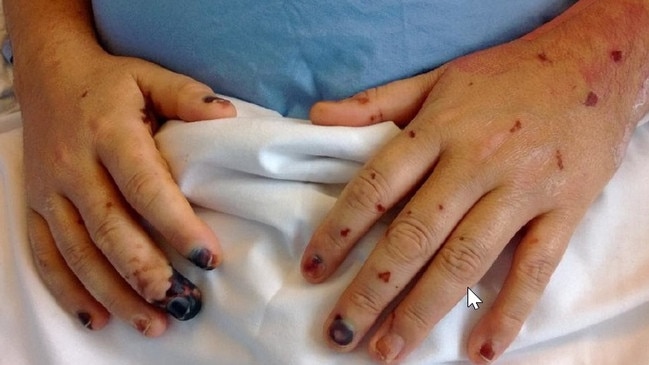Meningococcal symptoms can resemble common cold: Sydney health district
A Sydney health district is urging residents to be vigilant about the signs of meningococcal disease, as a harsh flu season leaves many with weaker immune systems. Here’s what to look out for.
Teenagers and young adults are at the highest risk of contracting the potentially deadly meningococcal virus due to intimate activities such as kissing.
The South Eastern Sydney Local Health District’s Professor Mark Ferson has urged residents to be vigilant about the signs of meningococcal disease, as a harsh flu season leaves many with weaker immune systems.
The rare but serious bacterial infection can cause death within hours if symptoms are not quickly identified.
“Last year SESLHD reported 10 cases of meningococcal disease,” Mr Ferson said.
“Most cases occur in infants, young children, teenagers and young adults, although people of any age can be affected.”
NSW Health’s Communicable Diseases director Dr Vicky Sheppeard said meningococcal can often mimic other illnesses, and nausea, vomiting, neck stiffness, joint pain, light sensitivity or a sudden fever could be indications of something more serious than the common cold.

“Most people normally associate meningococcal disease with a rash of red-purple spots or bruises but in some cases a rash doesn’t appear, or it could be the last symptom to take shape,” said Dr Sheppeard.
“Close and prolonged contact is needed to pass the bacteria on, and it more commonly occurs in people aged between 15 and 24 as they tend to be involved in more intimate social activities such as kissing.”
Vaccination is the best protection against meningococcal and vaccination for the A, C, W and Y diseases types is available on the National Immunisation Program for infants at 12 months of age and Year 10 students.
Adolescents aged 15 to 19 years who miss the vaccine in school are eligible for a free vaccine
from their GP.
However, as there are several strains of meningococcal disease, and vaccination does not cover all strains, even vaccinated people need to be on the lookout for symptoms.
Love local news? Subscribe now to the St George Shire Standard and join the conversation with your neighbours on Facebook and Twitter.


